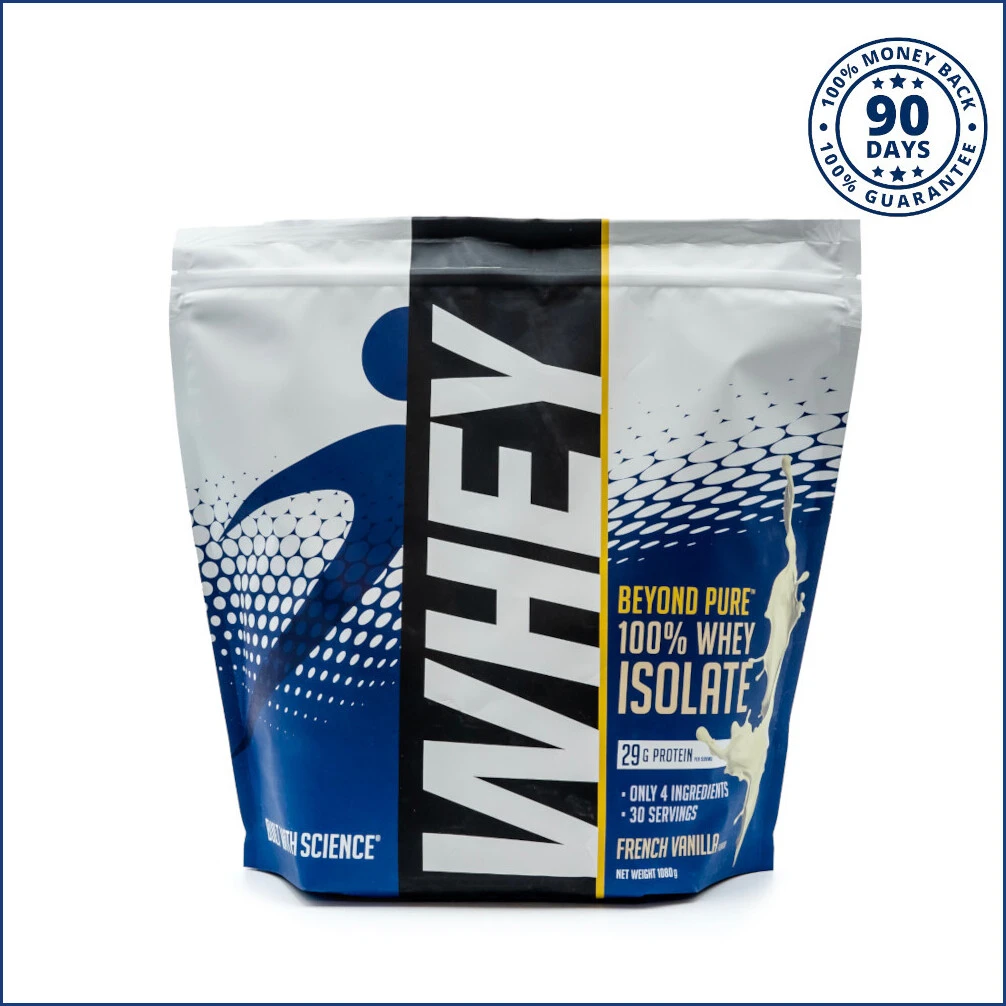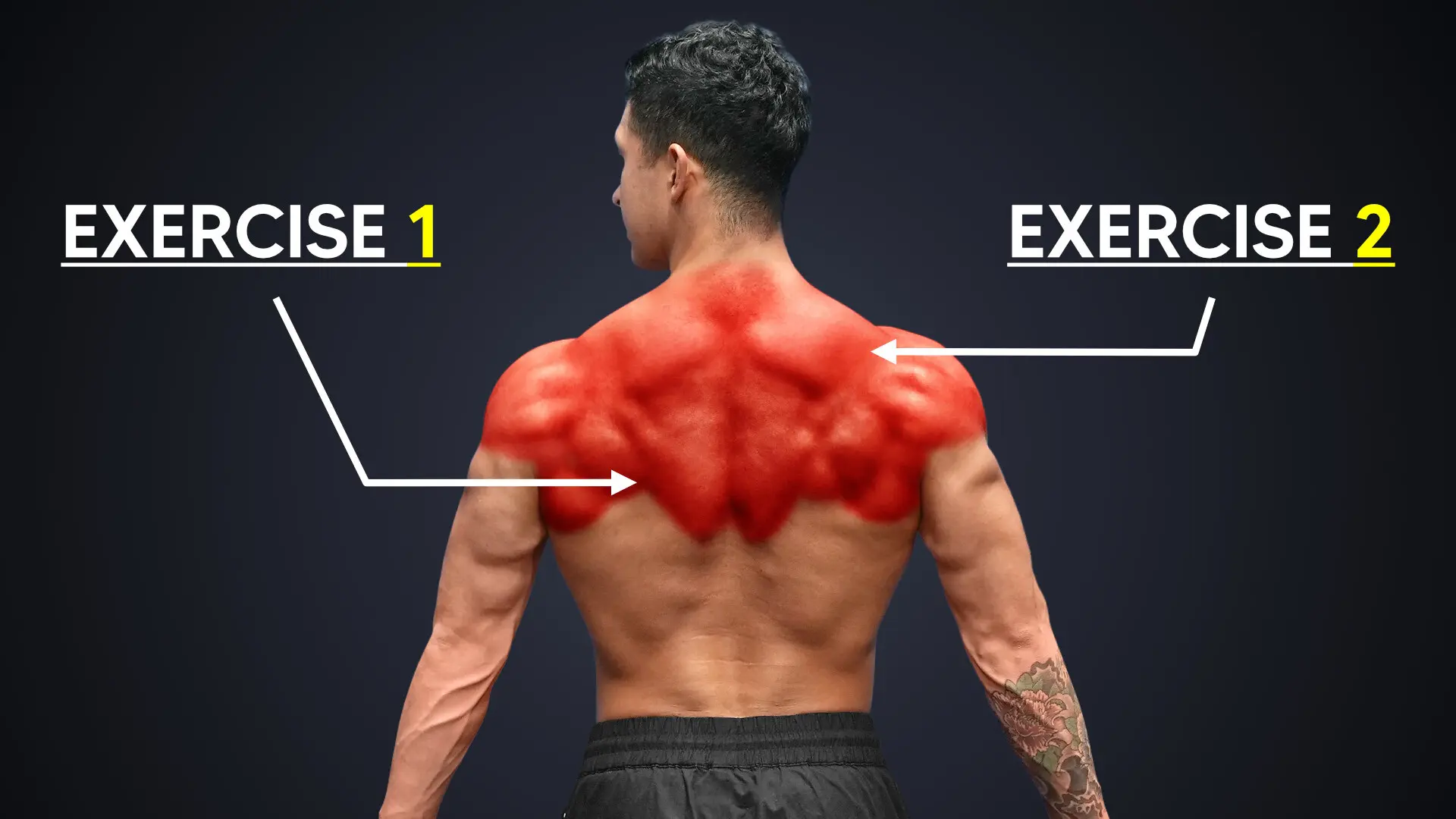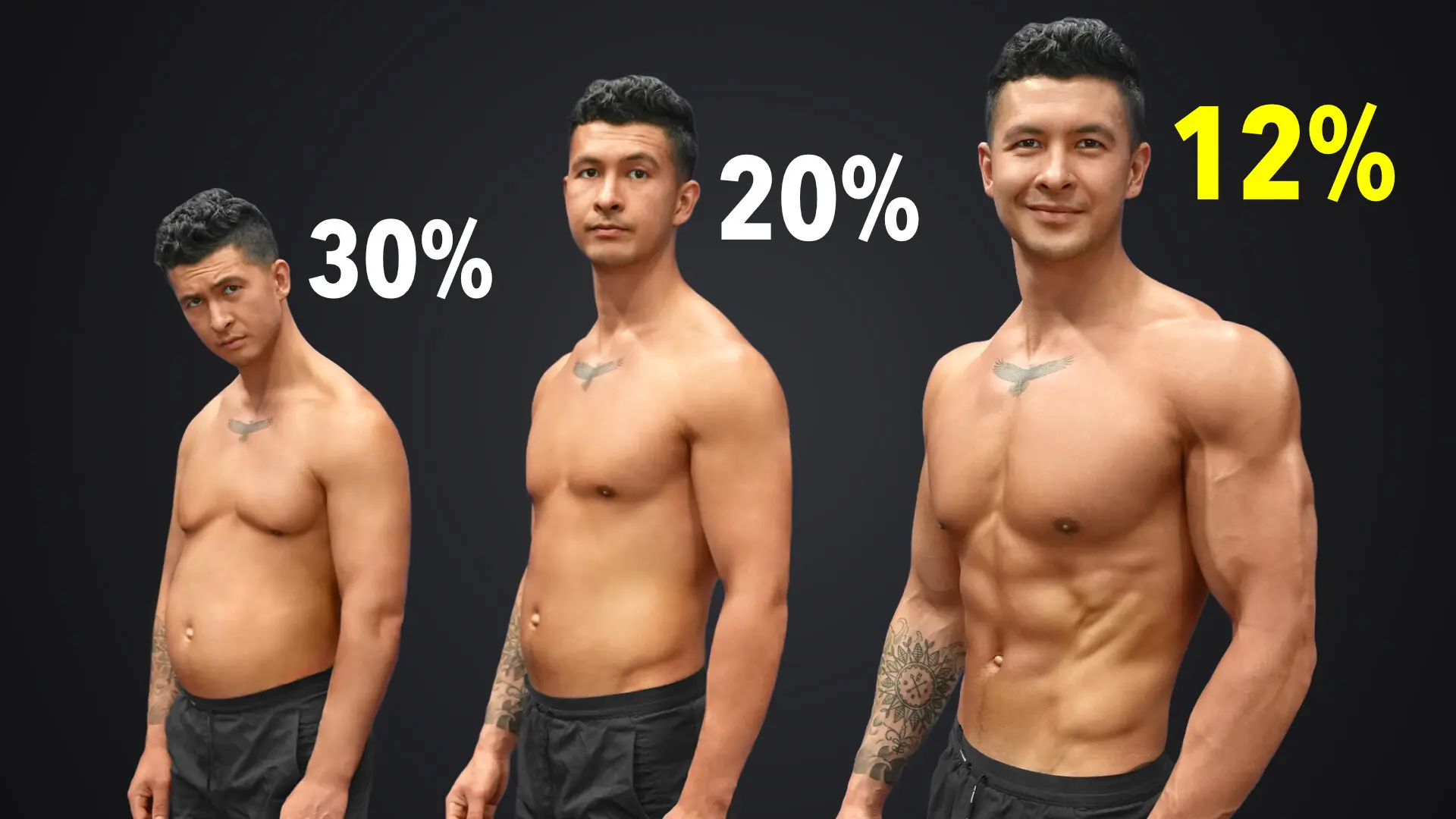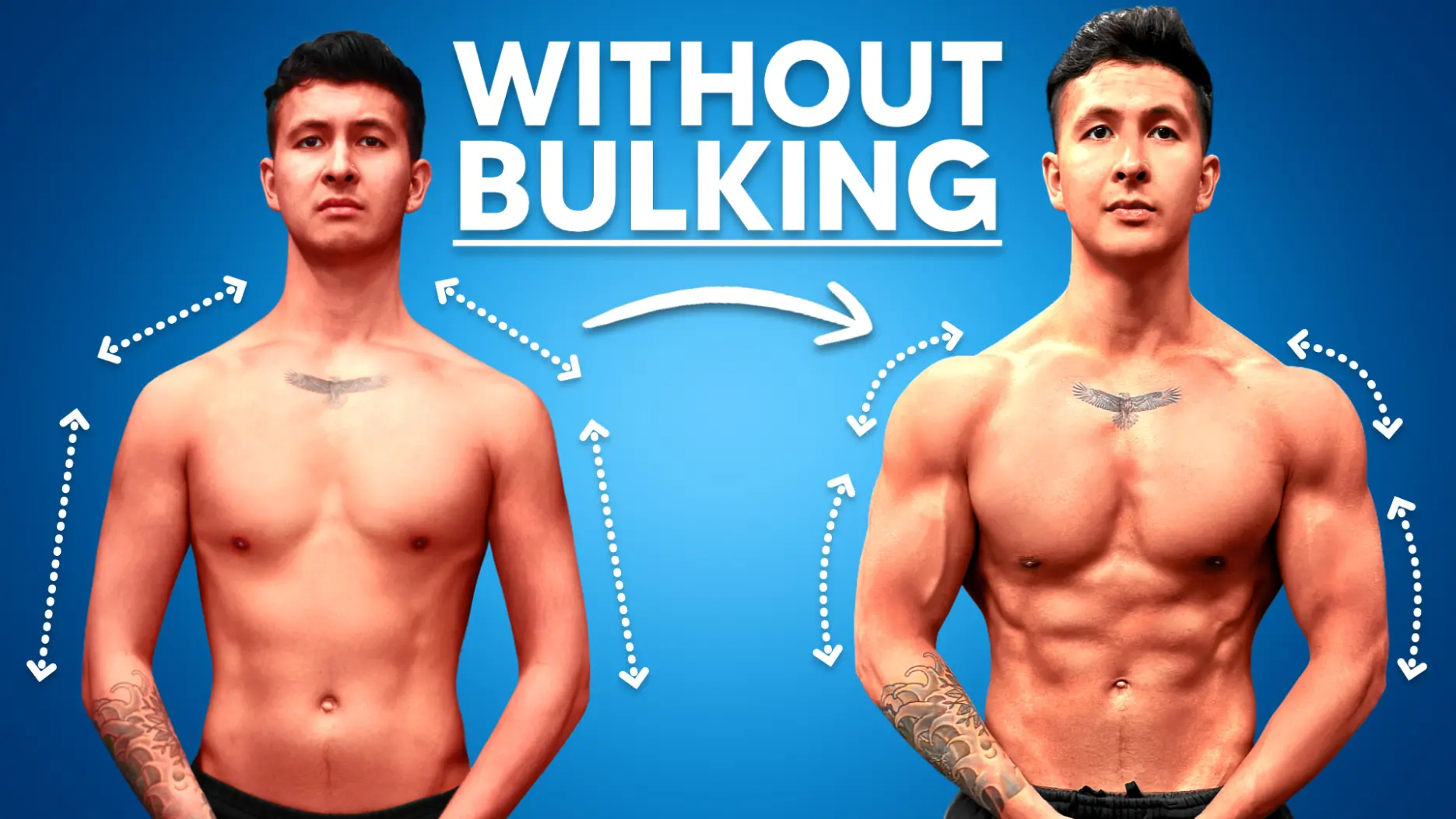
How To Build Muscle WITHOUT Bulking (NEW RESEARCH)
Surprise, surprise. You can build muscle without bulking. Learn how to achieve maximum growth with minimal fat gain here.
If you want to build muscle, you gotta bulk right?
I mean, that’s what all the biggest guys in the gym seem to be doing. But bulking can actually be the WRONG way to build muscle for most people.
Today, I’ll share why that is and how you can build muscle without bulking.
The Rationale Behind Bulking
Now, before we dive into the specifics of how you can build muscle without bulking, let's talk about why you need to bulk in the first place.
See, to build muscle, your body needs a lot of energy to:
- Train hard
- Provide your muscles with a reason to grow
- Recover
- Grow new muscle
And because of this, it was long thought that it's impossible to build muscle without bulking — because how else would your body get enough energy for this costly process without eating more food than your body needs every day?
However, the downside of bulking is that although you may be gaining muscle, you put on a lot of fat in the process. So, this got me thinking, "Can we build muscle without bulking? So we skip out or, at very least, minimize the fat gain bit?"
To find out, I recently spoke with Dr. Eric Helms, a pro natural bodybuilder and fitness scientist, and we touched on one of his specialties: the effectiveness of “traditional bulking".
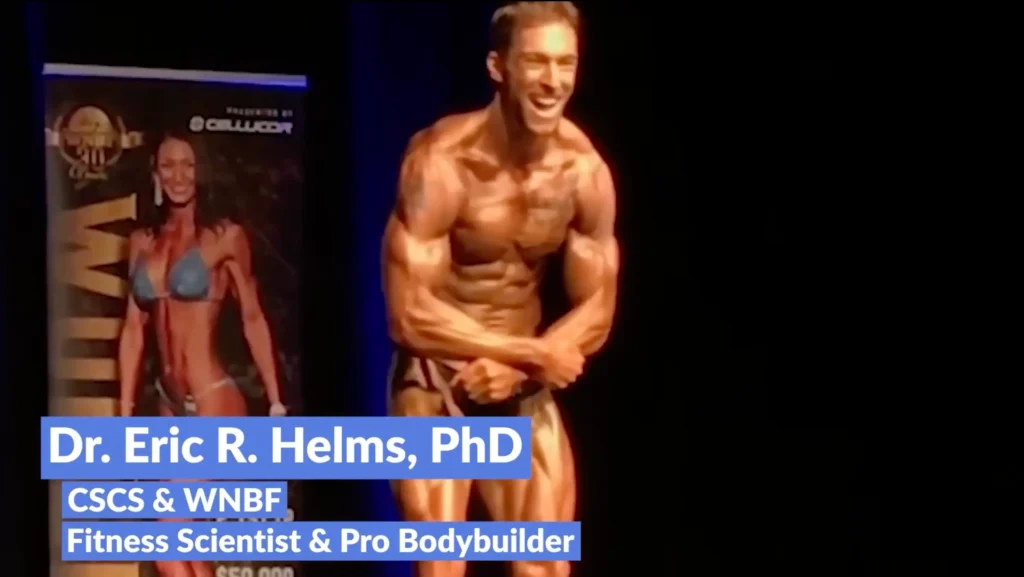
Is Bulking The Best Way To Build Muscle?
Jeremy:
First off, this is going to be a little bit of a tough question, but I'm curious to see your answer. Is bulking the best way to build muscle?
Dr. Eric Helms:
That really depends on who you are.
If you're relatively new to lifting and you're within what we would call normative body fat ranges, it is potentially.
Jeremy:
Now when I started lifting, my first bulk worked extremely well. But after that, I noticed my bulks became less and less effective. I’d end up gaining a ton of fat and far less muscle than I used to.
Now, what Dr. Eric Helms said got me thinking about another question:
Is Overeating The Only Way To Build Muscle?
What about the excess fat you're carrying on your body? Could you build muscle without bulking by burning off the excess fat and using that as fuel for the muscle-building process?
Build Muscle Without Bulking By Turning Fat To Muscle?
Well, let’s take a look at this 2021 meta-analysis, which is basically a “study of studies”.
They wanted to compare how muscle growth and strength are affected if you lift weights while in a calorie deficit, which involves eating fewer calories than your body needs every day.
Surprisingly, strength gains didn’t actually differ much in the two conditions.
But for muscle gains, almost every single study involving a calorie deficit led to muscle loss.
Whereas every study without a calorie deficit led to muscle growth.
However, a deeper look into the individual data points paints the real picture.
Although on average a calorie deficit led to more muscle loss, it depended on the size of the deficit.
With a smaller deficit of around 200 - 300 calories below maintenance, muscle growth was actually quite common.
It was only once the deficit became greater than around 500 calories that muscle gain became far less likely.
It's Possible To Build Muscle Without Bulking
This debunks the belief that you need to be in a calorie surplus, or “bulk”, to build muscle.
For most people, it's entirely possible to build muscle without bulking. To achieve the holy grail: build muscle while losing fat.
In fact, Dr. Eric Helms agrees that it's 100% possible to build muscle without bulking:
There's a great paper by Barakat and colleagues published in the Strength and Conditioning Journal.
They show multiple times that people can lose fat and gain muscle at the same time. Or, in other words, that you can build muscle without bulking. Of course, would doing so be as efficient in an intermediate or advanced lifter as being in a small surplus? Probably not.
But it is one way, or rather, another approach that might fit someone better if they're already higher in body fat than they would like to be.
Now, when executed properly, I've seen this strategy — body recomp, or where you build muscle without bulking — work with many of our Built With Science members.
But not everyone should or can build muscle without bulking. I'll explain why later on.
Now does all this research mean bulking is useless? What if you’re not interested in learning how to build muscle without bulking because you're:
- Not worried about fat loss and
- Simply want to maximize growth?
Bulking Works, But It's Not For Everyone
Well, that’s when bulking can be extremely effective, at least in some cases.
Dr. Eric Helms:
If you're starting with an already high body fat percentage, it's totally fine to go into a surplus and put on muscle. You don't have to build muscle without bulking. Just be aware that it will come with more body fat gain.
So, if you're already close to where you're comfortable with the way you look, you might want to consider taking an approach where you're eating at maintenance or you're trying to lean gain. This is where you build muscle without bulking. Or you might even decide to cut first before eventually bulking.
And that doesn't mean any strategy is better than the other from any point (i.e., build muscle without bulking isn't better than cutting first before bulking, and vice versa).
What you eventually choose has to do with 2 things:
- What you're comfortable with
- Your aesthetic goal
Jeremy:
Note that it's mostly beginners that benefit from bulking, though.
Illustrating this is a 2002 study, which took a group of beginners who had just started lifting weights and gave them a 2000-calorie weight gainer on top of their usual diet.
After 8 weeks, they all gained around 7 lbs. If you do the math, this means they were probably in a daily calorie surplus of around 400 - 500 calories.
Now, of the 7lbs they gained, almost all of it was lean mass, not fat.
Dr. Eric Helms:
So, it goes to show you that if:
- You're a young, untrained person of, like I said, relatively normative body fat ranges, and
- You go on a pretty aggressive bulk (averaging 400 calories in surplus — as with the 2002 study)
... then you're going to put on predominantly muscle mass as long as you're training hard and applying progressive overload.
Jeremy:
So, in some sense, it wouldn't be in your best interest to try to build muscle without bulking if you're a beginner and it's your first bulk.
That said, remember when I mentioned my first bulk earlier?
At the time, I took the advice “You gotta eat big to get big” to heart. At one point, I was drinking almost a gallon of milk a day.
It worked really well. I gained a lot of size while staying relatively lean.
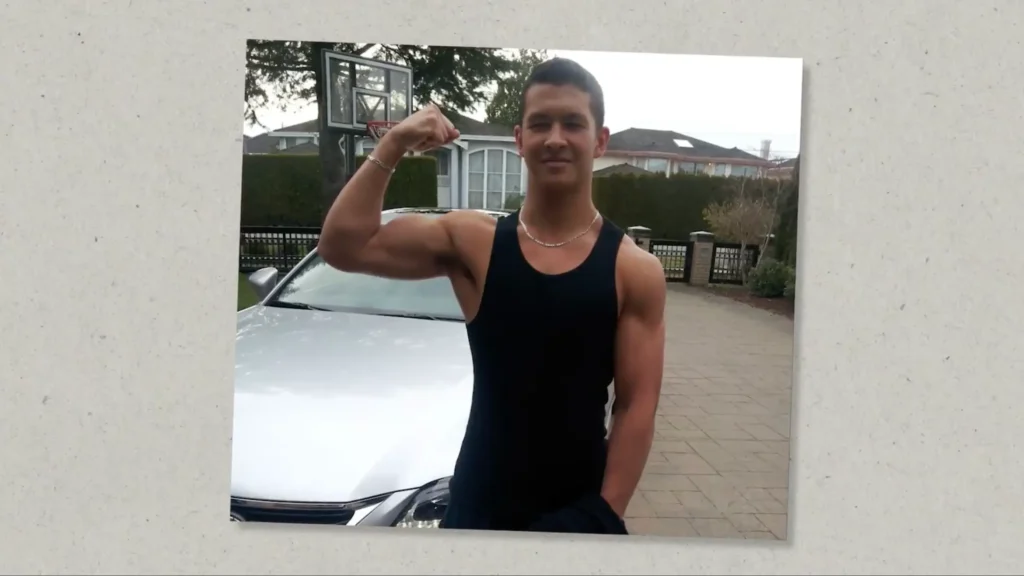
But after my first bulk, I began to notice that bulking wasn’t giving me the results I hoped for. I would end up gaining way more fat compared to muscle, and I couldn’t figure out why.
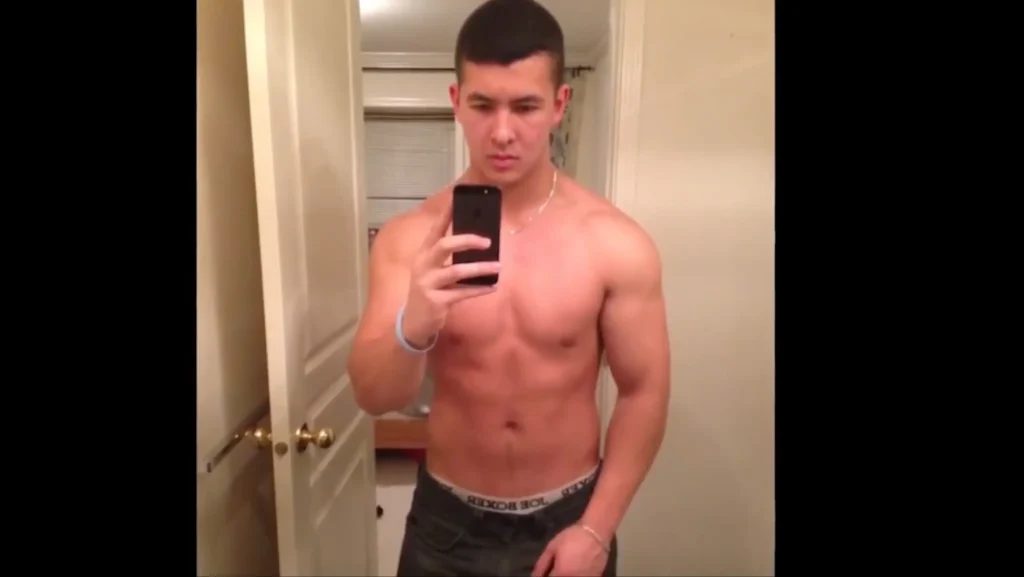
Well, remember how I mentioned the bulking study we just went through was done on beginners? Beginners have the highest sensitivity to muscle growth. This is where the term “newbie gains” comes from, and it’s why bulking mostly works for newer lifters.
What happens when you’re past the beginner stage, though?
Bulking Becomes Less Effective Over Time
This is where studies have shown that traditional bulking becomes less effective.
For most people that is. You’ll get lifters like Sam Sulek and pro bodybuilders who are an exception, and I’ll explain why shortly.
But let’s look at the science first. One study published just last year found that in trained individuals, eating just enough to maintain their weight led to a similar amount of growth compared to bulking, but with far less fat gain.
Which makes sense.
You can’t just eat as much as you want and have all of the extra calories turn to muscle.
If that were true, everyone would walk around jacked out of their minds.
Muscle growth is slow and it gets even slower as your body grows. In the beginning, building muscle quickly means your body can use more of its excess calories.
But once this slows down, more of those excess calories will be stored as fat instead.
Simply put, your body will only use what it needs for muscle. All the extra calories will turn to fat. And it will then be your job to burn that fat off, and is why “traditional bulking” becomes less effective over time. And that's when you should start trying to build muscle without bulking.
Dr. Eric Helms:
This is kind of a bad cycle that people get stuck in their bulking season or improvement season.
It turns into this "see food" diet and they gain far faster than they could hope to put on muscle. They're way past the point of optimizing the ratio of fat to muscle gain.
And then they get too high in body fat.
They wait till the last minute before when they feel like they want to look different and they do this rapid cut either for a competition or for the summer or for whatever reason, that spurs them on and then they go on this crash diet.
So they end up putting on unnecessary body fat and then they end up dieting and actually losing some of the muscle mass that they would've got. And there's no benefit to that process.
What About Pro Bodybuilders?
Jeremy:
So what about Sam Sulek and pro bodybuilders?
Well, apart from beginners, the other group who shouldn't try to build muscle without bulking are bodybuilders who take performance enhancing drugs.
In a way, steroids take you back to your beginner stage of training.
You all of a sudden can build muscle really quickly. As a result, more of the excess calories you eat will go towards building muscle rather than fat.
Dr. Eric Helms:
Theoretically, when you're using anabolics, your ceiling goes up.
When this is all done right, it does move you back maybe one step. If you're advanced, it'll make you get intermediate gains. If you're intermediate, it'll make you get novice gains, but honestly, you shouldn't be doing this unless you're advanced at all in the first place.
Jeremy:
Sam Sulek weighs in at around 240 lbs and eats anywhere from 5,000 to 6,000 calories per day during his bulk.
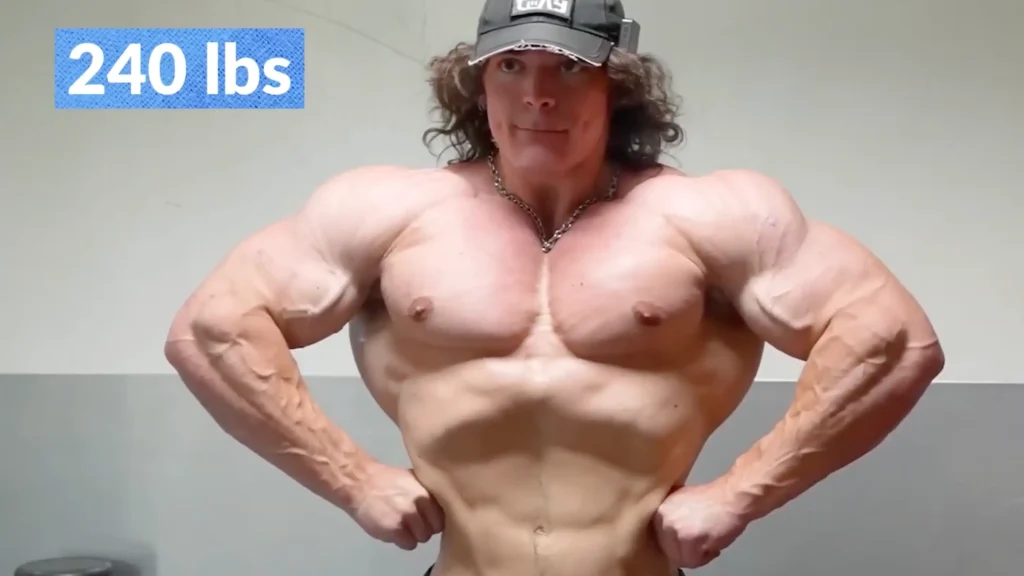
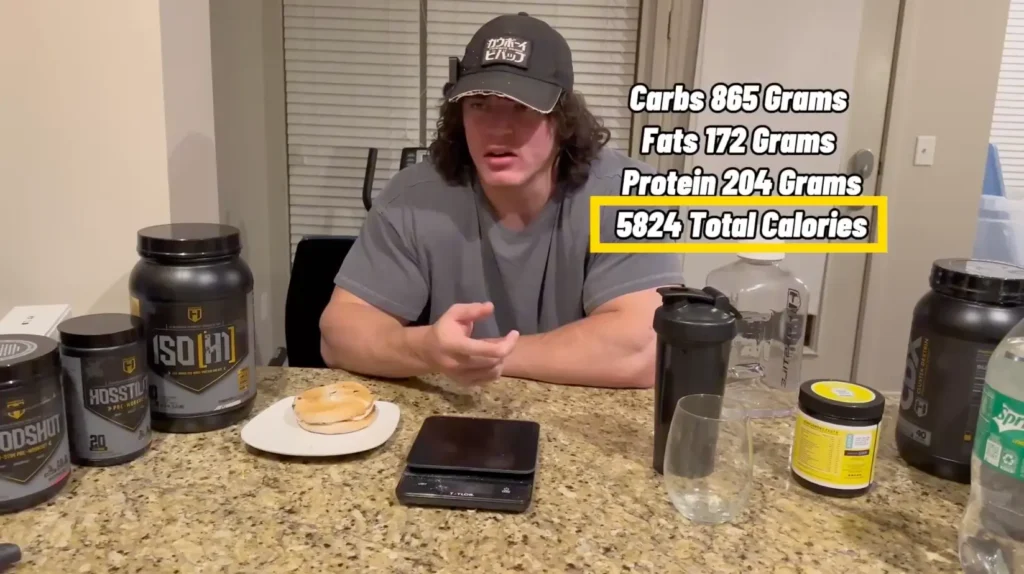
He gains close to a pound a week from this and from the looks of it, a good chunk of that weight gain is muscle rather than fat.
But this can be misleading.
For example, I remember watching videos of the incredibly jacked Ronnie Coleman eating 6,000+ calories a day during his bulk back in the day and thinking I had to do the same.
But eating anywhere close to that number of calories would’ve just blown me up, and not in a good way.
This brings us back to the reality that for a natural lifter past the beginner stage, muscle growth is very slow. Much slower than any of us would look to admit.
If you try to rush it, you’ll just gain more fat rather than muscle. By the way, there are really only 4 ways to speed up muscle growth — learn what they are and how to use them here. You need to scale your diet based on your experience level and how sensitive you are to muscle growth.
Which brings us to the next question, how many calories should you be eating to build muscle without bulking to minimize fat gain? Well my talk with Eric Helms led to some great recommendations.
How To Approach Bulking
If you’re a beginner, which means you’re able to get stronger in the gym pretty much every week, then, in general, you shouldn't aim to build muscle without bulking.
Instead, aim to gain around 2% of your body weight per month.
This works out to what most people would define as a typical “bulk”, where you eat a daily calorie surplus of around 400-500 calories.
Now this is what 2,500 calories looks like.
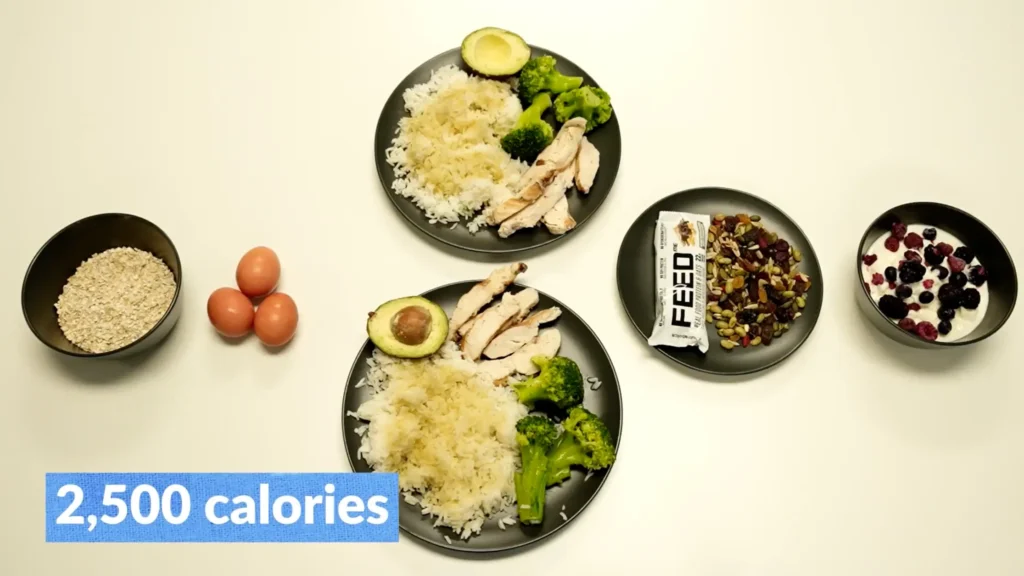
If this was your maintenance calories, then a 500 calorie surplus would look like adding 1 small meal into your day.
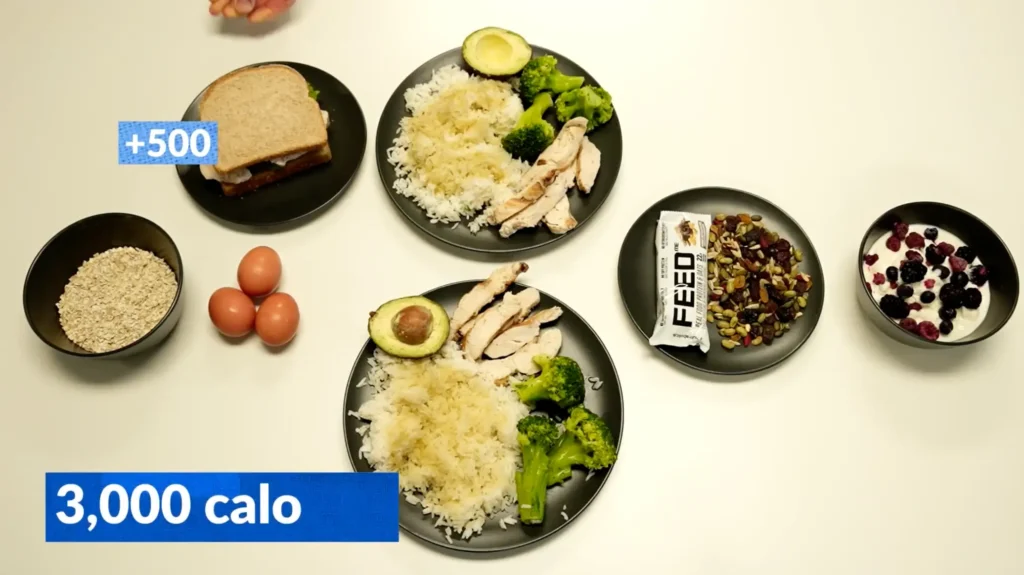
Dr. Eric Helms:
And then once you start to notice that it seems like it's mostly just fat coming on, you want to slow down that bulking process.
You want to cut that calorie surplus probably in half roughly, and then just focus on progress in the gym.
Typically, this happens after about a year of consistent training which is when you’ll want to scale it back to more of a “gaintaining” approach.
It’s technically still a bulk, just slower.
Where you try to gain just 1% of your bodyweight per month by using a small surplus of just 200 to 300 calories.
Such as adding an extra granola bar and apple to your day.
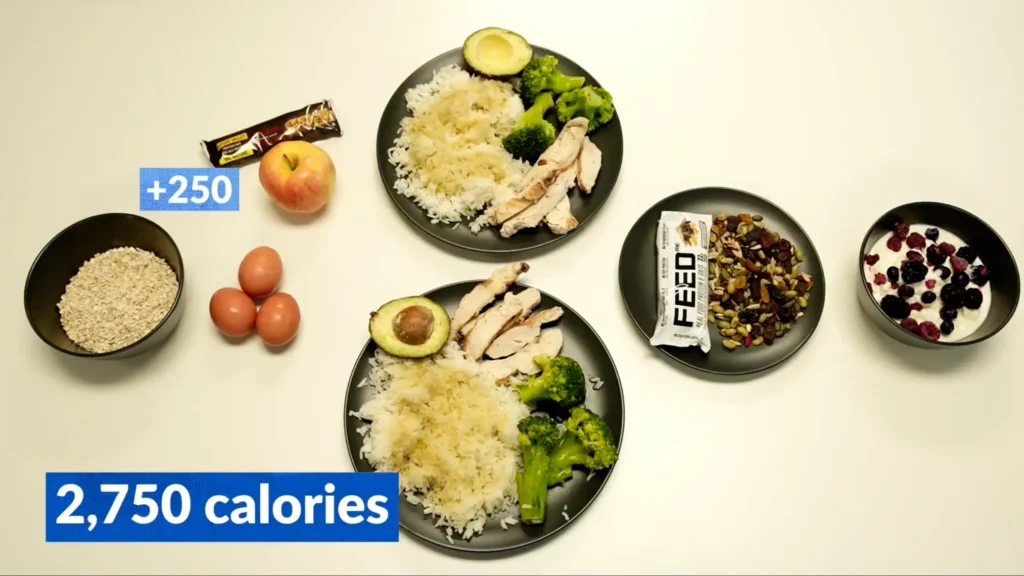
Then, once you get into the advanced stage and are near your genetic ceiling of muscle growth, that’s when you dial it back even further by using a very small surplus that could honestly just be as little as 1 extra banana per day.
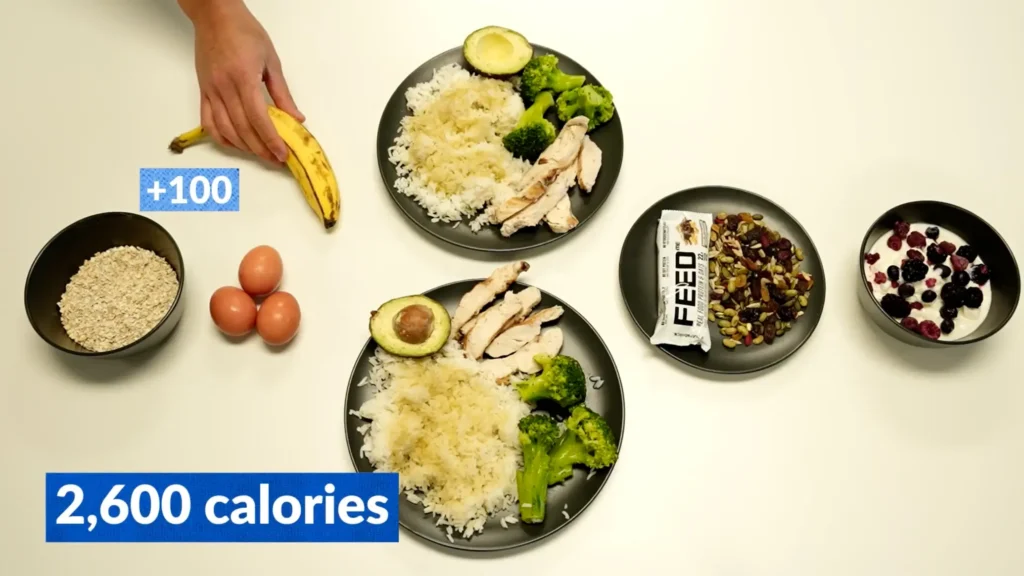
Technically speaking, because of how small the surplus is, this is where you build muscle without bulking.
Jeremy:
As you saw, it doesn’t take much extra food to build muscle which means it also doesn’t take much extra food to gain fat, either.
Believe me, I’ve been there.
You all of a sudden go into “bulking mode” and use that as an excuse to eat whatever you want. Then to make matters worse, people will then try to rush their diet to lose all the extra fat they put on and end up losing all the hard earned muscle they gained.
Now even if you use a small surplus, you should expect some fat gain, but it shouldn’t be excessive.
For example, I’ve only gained around 8 pounds in the past 7 months by sticking to a very small surplus of just 200 to 300 calories.
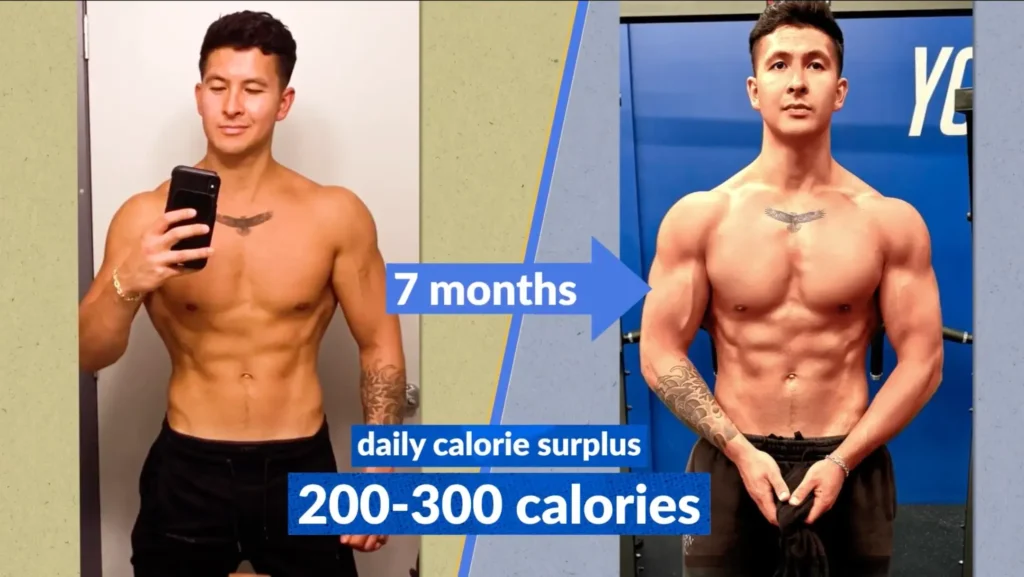
I’ve seen really solid muscle and strength gains, and while I have put on a bit of fat as well, I can quickly burn it off in just 4-6 weeks of dieting compared to my “traditional bulks” in the past where I’d have to diet for at least 12-16 weeks afterwards.
Should You Track Your Surplus?
That said, unless you’re super analytical or really dedicated to your fitness goals, I’ll admit tracking all this stuff can get overwhelming especially if you’re trying to build muscle without bulking and, as a result, trying to nail down a really small surplus.
If this sounds like you, then don’t worry about tracking anything.
I mean, most 6 year old kids don’t count their calories but they still manage to eat enough to grow and get bigger.
Just focus on eating lots of protein, healthy whole foods, and use your strength and your body weight to determine if you’re eating the right amount.
If after a month you step on the scale and you’ve gained 10 lbs, then you know you gotta dial it back.
On the other hand, if you lost weight and haven’t been getting stronger in the gym, then that’s a sign you gotta eat a bit more.
Dr. Eric Helms:
I think before someone jumps into a committed off-season bulk, they really just need to commit to learning the basics of nutrition. A great way to do this is just have an intentional maintenance phase where you are paying attention to your nutrition.
Take a look at your diet without trying to change it and just track, see, okay, what does my habitual diet produce as far as calories, protein, and all your macros?
You want to get to the point where you can maintain your weight without necessarily needing to log into MyFitnessPal or whatever app you're using and weigh every ounce of food. Then, that's when you can consider what strategy you want to use: bulk, build muscle without bulking, cut, etc.
TL;DR
- Build muscle without bulking — this was thought impossible because your body needs a lot of energy for muscle growth.
- However, research clearly shows that you can build muscle without bulking as long as you’re in a small to moderate calorie deficit (< 500 calories).
- This is a good thing because bulking 1) is associated with fat gain and 2) becomes less effective over time.
- That said, in general, beginners and professional bodybuilders on performance-enhancing drugs shouldn’t aim to build muscle without bulking.
- Beginners should eat 400 to 500 calories in surplus (although this also depends on your goal; more details to follow). Then, once you notice that you’re mostly gaining fat, cut that surplus by half. Finally, once you get into the advanced stage, use only a very small surplus (e.g., +1 banana).
What Does All That Mean For You?
Jeremy:
Alright pay attention because I’m about to give you a simple breakdown on the best approach to building muscle depending on where you’re at.
First off, for those who aren’t crazy lean and want to lose fat while building muscle, eat just enough calories to maintain your weight or at a small deficit to lose no more than half a pound a week. Because, once again, you can build muscle without bulking — and even if you're in a small deficit.
Just keep in mind this approach can become less effective as you get more experienced.
On the other end, for those who are less interested in losing fat and want to maximize muscle growth, use the bulking and “gaintaining” guidelines I presented earlier.
That said guys, if you’re not training in a way that forces your muscles to grow in the first place, then you’re not going to see very good results no matter your approach.
So if you’re not completely confident with the effectiveness of your current workout routine, I highly recommend taking our quiz over at builtwithscience.com to find the best science-based program for you and your body.
So if you’re not completely confident with the effectiveness of your current workout routine, I highly recommend taking our quiz below to find the best science-based program for you and your body.:
Click the button below to take my analysis quiz to discover the best program for you:
↓
Also, if you’re struggling with your nutrition and want a quick, cheap, and healthy muscle-building meal plan, give this article a read next.
Thanks for sticking to the end, and I'll see you next time!

